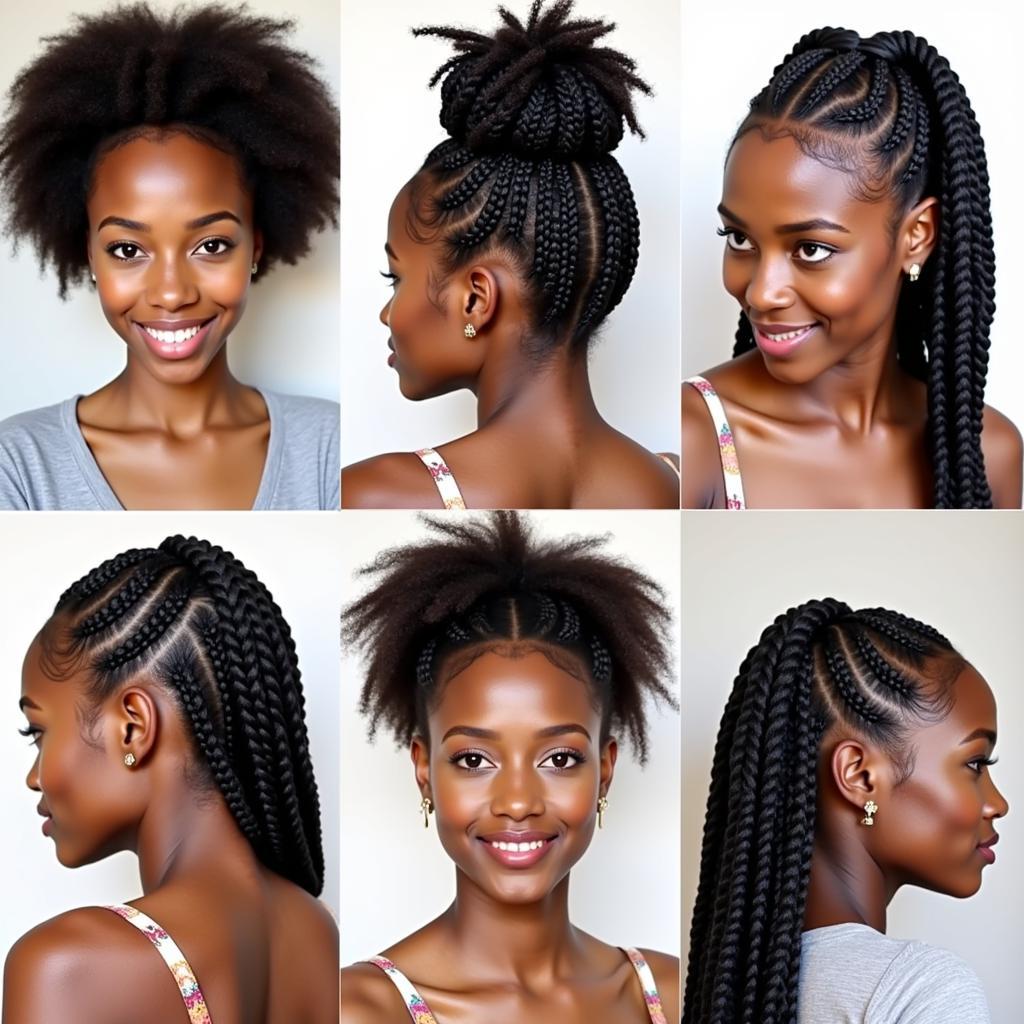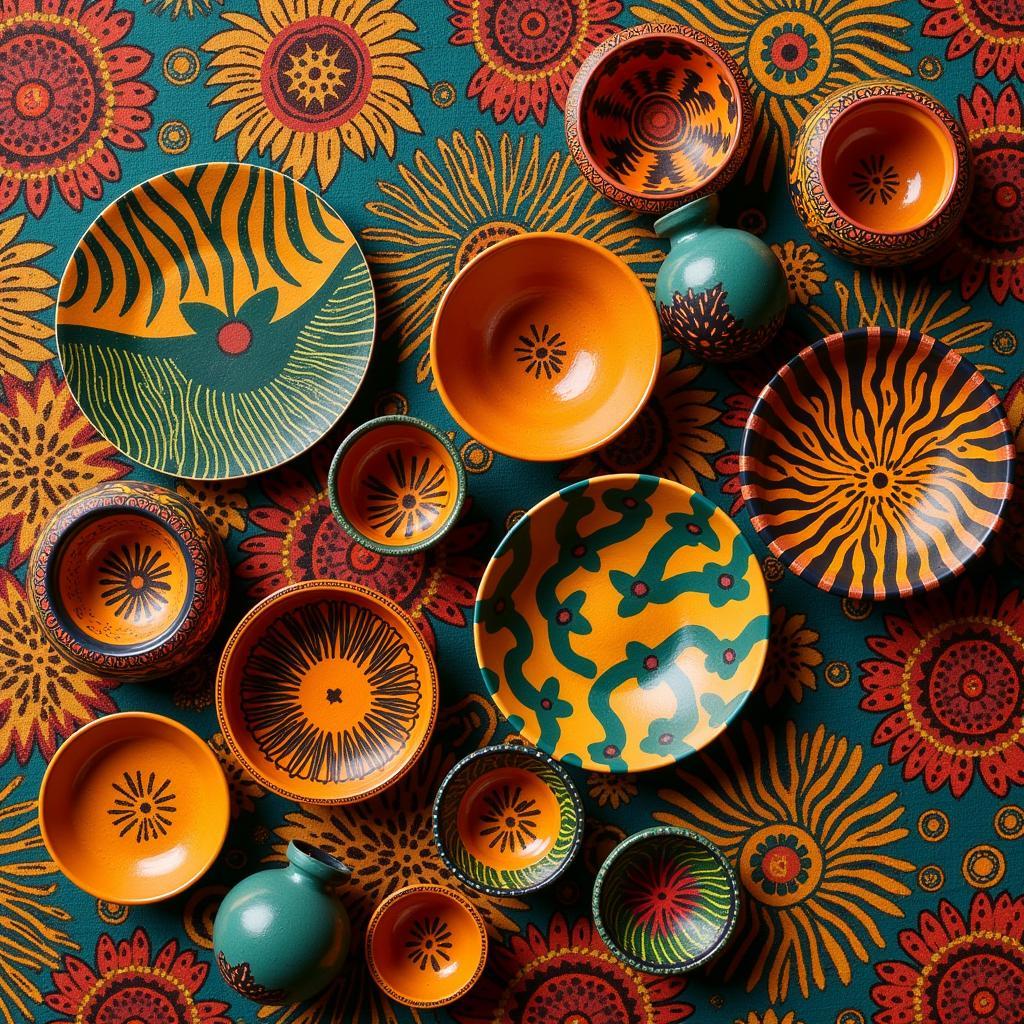Essential African Hair Tips for Healthy and Vibrant Growth
African hair, in all its glorious textures and forms, requires specific care and attention. This article provides essential African Hair Tips to help you maintain healthy, vibrant, and flourishing hair. african hair growth tips We’ll delve into the unique characteristics of African hair and explore practical techniques and routines to promote its well-being.
Understanding Your Unique Hair Type
African hair is often characterized by tight curls and coils, which can make it prone to dryness and breakage. This texture also means that sebum, the natural oil produced by the scalp, has a harder time traveling down the hair shaft, leading to less moisture. Understanding this is the first step towards effective african hair care.
Identifying Your Hair Porosity
Knowing your hair’s porosity—its ability to absorb and retain moisture—is crucial for choosing the right products. There are three main porosity types: low, medium, and high. Low porosity hair repels water, medium porosity absorbs it well, and high porosity absorbs quickly but also loses moisture rapidly.
African Hair Tips for Cleansing and Conditioning
Washing and conditioning are fundamental to healthy hair, but the approach for African hair is unique. Over-washing can strip away essential oils, while infrequent washing can lead to product buildup. Finding the right balance is key.
How Often Should You Wash?
Generally, washing your hair every 1-2 weeks is sufficient. However, this can vary based on your lifestyle and hair type. If you exercise frequently or have oily hair, you may need to wash more often.
Choosing the Right Products
Opt for sulfate-free shampoos and moisturizing conditioners specifically formulated for African hair. These products are less harsh and help to retain moisture. Deep conditioning treatments are also highly recommended african american hair tips to replenish moisture and strengthen hair.
Styling and Protecting Your Hair
Protecting your hair from environmental damage and breakage is crucial for healthy growth. Protective styles, like braids and twists, are great options.
Protective Styling: A Shield for Your Hair
Protective styles minimize manipulation and exposure to the elements, promoting healthy growth. However, it’s important not to keep these styles in for too long, as this can lead to breakage. african hair growth Aim for 4-6 weeks maximum and ensure your hair is properly moisturized before and during styling.
Avoiding Heat Damage
Excessive heat styling can damage African hair, leading to dryness and breakage. Minimize the use of heat tools and always apply a heat protectant spray before using them. Air drying is the gentlest option. african hair treatment tips Embrace your natural texture and explore heat-free styling methods.
 Protective African Hairstyles for Healthy Growth
Protective African Hairstyles for Healthy Growth
Nutrition and Overall Health
Healthy hair starts from within. A balanced diet rich in vitamins and minerals is essential for hair growth. Incorporate foods rich in protein, iron, and vitamin D.
“Hydration is key for healthy hair growth,” says Dr. Anika Nkosi, a leading trichologist specializing in African hair care. “Drinking plenty of water throughout the day helps to nourish the hair follicles from the inside out.”
“Protecting your hair at night is also important,” adds Dr. Nkosi. “Sleeping on a satin pillowcase or wearing a satin bonnet helps to reduce friction and prevent breakage.” This small step can make a significant difference in maintaining your hair’s health.
Conclusion
Taking care of African hair requires a tailored approach, focusing on moisture retention, gentle handling, and protective styling. By following these african hair tips and understanding your unique hair type, you can achieve healthy, vibrant, and thriving hair. Remember that consistency is key, and finding the right routine may take some experimentation. african beauty tips
FAQ
- What is the best way to detangle African hair?
- How can I prevent breakage?
- What are some natural remedies for hair growth?
- How often should I trim my hair?
- What are the benefits of using oils on African hair?
- How can I identify my hair type?
- How do I choose the right products for my hair porosity?
Common Scenarios and Questions
- Scenario: My hair is constantly dry and brittle.
- Possible Solutions: Deep condition regularly, use leave-in conditioners, and avoid over-washing.
- Scenario: My hair is breaking a lot.
- Possible Solutions: Protective style more often, minimize heat styling, and be gentle when detangling.
Further Exploration
For more information on specific hair care routines, explore articles on:
- Natural Hair Regimens
- DIY Hair Masks
Contact Us
Need personalized advice? Contact us at +255768904061, email [email protected], or visit us at Mbarali DC Mawindi, Kangaga, Tanzania. Our 24/7 customer service team is ready to assist you.

